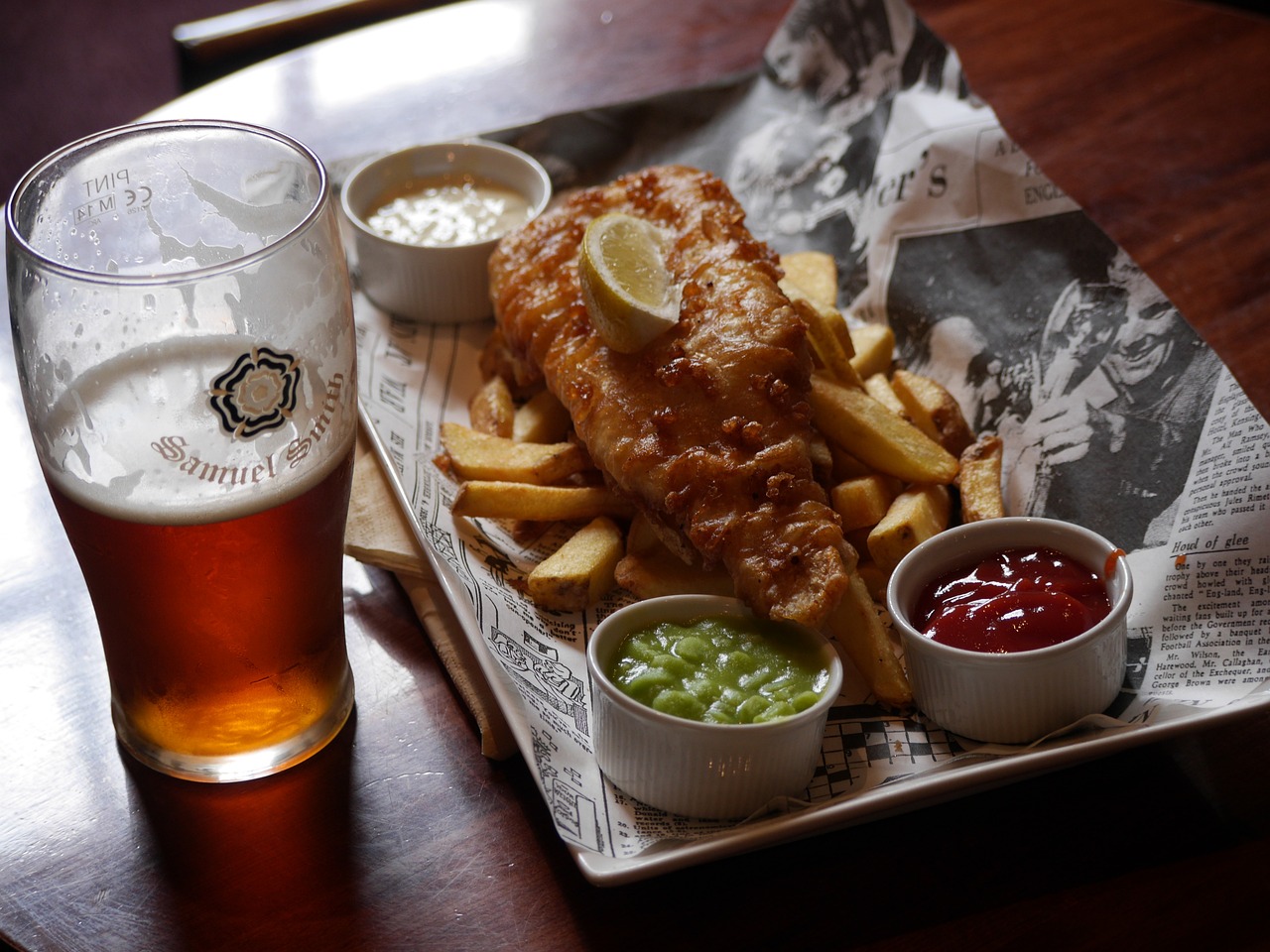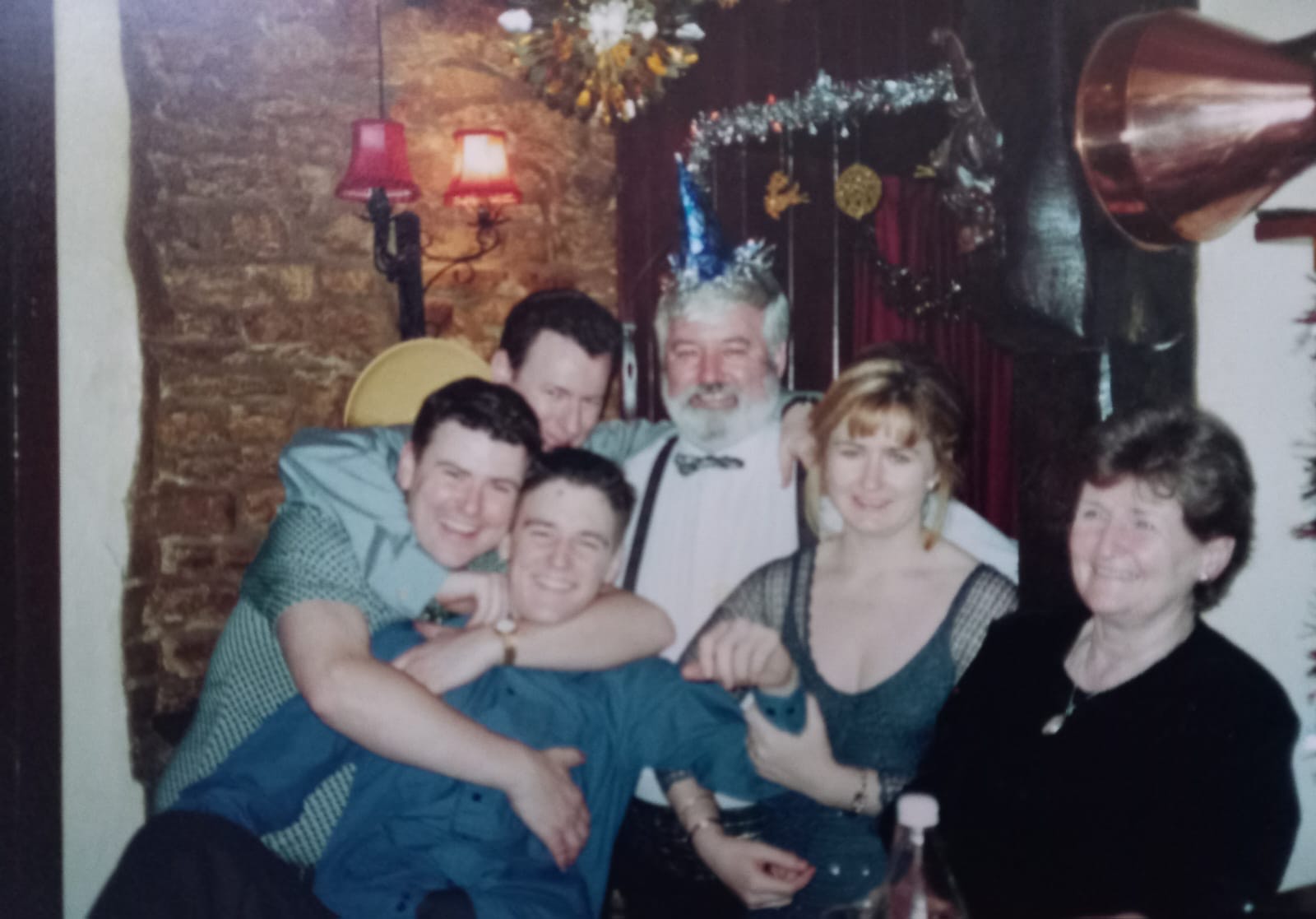Tommy Gilhooly shares the story of his family pub, from its modest start to pioneering gastropub culture in Northamptonshire
If journalism doesn’t work out, I have a backup. It’s in my blood. Taking over the reins of my cherished local, I’d claim the title of a third-generation publican.
Reins is perhaps the right choice of word. When my parents, Jo and Paul Gilhooly, first took over The Axe and Compass in the rural village of Ringstead, Northamptonshire, in the early 1990s, it was in a state of disrepair. A donkey (with unfastened reins) roamed the yard partnered with a myna bird, which occasionally screeched naughty words, taught by conniving locals looking for a kick alongside their ale. The only toilets were outside. It was rustic, to say the least.
Previously a precious local to the village community, The Axe and Compass was to be shut down and sold off as a house. My parents saw an opportunity. My dad had learnt to cut his teeth and pull pints in the 1980s as one of the youngest licence holders in the UK at my grandparents’ pub – The Olde Victoria in Burton Latimer, Northamptonshire. So, they rented the dilapidated pub from the brewery (eventually buying it as a freehold) and then opened a restaurant behind the bar – unifying a love of beer with traditional English cooking made from scratch.
“The term ‘gastropub’ wasn’t around, but that’s what you would call it now,” my dad remembers. “Up to the 1980s, you didn’t eat out that much in well-to-do restaurants because of how expensive it was. It was not like the casual dining you see now. That was just starting on the cusp of the 1990s. And food in pubs was becoming more popular.” There they saw an opportunity in part both commercial and communitarian in opening the restaurant.
Rivalling the dank odour of beer was rich gravy from the kitchen. “We introduced real ale and all our food was made from scratch by a professional cook. We emphasised good quality food and service to provide a lovely environment the community could dine in.”
The menu rapidly amassed all the pub classics: lamb shanks, steak and ale pie, fish and chips. “We had six starters, six mains and six desserts,” but with no deliberate satanic resonances, my dad assured me. The food was rich, the gravy which adorned it glossy in texture. “Fly fishers would often come in with trout from the lake. The deal was, if I cooked them for free, they would give us some of the spare fish. You couldn’t get any fresher than that.”

The pub was a melting pot for social types. Fishers, builders, farmers, the born-and-bred working class of Ringstead. “You would have had to have been there for 20 to 30 years to have been considered a local,” says Dad. “You would still be considered ‘new’ if you’d only been there for a decade.”
You also had shooting parties. “A group of hunters one year hosted an annual dinner at the pub. They only wanted game on the menu – traditional meats. The first time they came, it was a tremendous success. But pandemonium set in towards the end. Half the people had left. Nobody had paid. The president ended up paying for all the drinks and then later collected the money.” my dad recollects.
The next year, the president had sent instructions that everyone in the party was to pay as they ordered their drink. “That was the first bone of contention. Jo had gone over to collect money from one of the ladies for her wine. Suddenly, a member of the hunting group declared: ‘How dare you, a serving wench, ask a lady for money?’ Everything got very drunk very quickly. Suddenly nothing was called what it should have been; when coffee was served after the dinner, one member insisted on having ‘cow’s juice’.” Food therefore brought everyone around the table at the pub. The good, the bad, and the posh.
“We introduced real ale and all our food was made from scratch by a professional cook. We emphasised good quality food and service to provide a lovely environment the community could dine in”
Paul Gilhooly
Despite such close shaves, the pub was truly the social hub of the village. My mum remembers the “buzzing atmosphere, always warm and alive”.
“We had this amazing wallpaper created from Victorian prints. It had the colours of that era – those rich red and green tones. I’ve never seen anything like it again and it created a unique eating space.” she says.
Friday and Saturday nights would be alive with chat, drinking and excitement. You would have the skittles, darts, and even a meat raffle all going on simultaneously. “The important thing was that the pub was a freehold, bought off the brewery, which allowed us to escape the formulaic and give the pub its own unique character.”
There were famous locals, too. My dad remembers Joan, who had only spent two nights in her whole life sleeping outside of the village of Ringstead at 80 years old. “And those two were only when she was committed to Kettering General Hospital. When we refurbished the pub in 1995, we worked out that Joan had drank over 27,000 pints in The Axe and Compass over her life. She had three half-pints every single night. We had a stool put in with a sign saying: ‘At 9:45 pm, please vacate this place as this is where Joan sits.’” There was also Craig, a roadie with Oasis who had lived the life of rock and roll. He had escaped this to be in his own oasis – that being the quiet, bucolic Ringstead.
This year, the Gilhooly family returned to The Olde Victoria for my grandfather’s 80th birthday – the pub in Northamptonshire that began this all. The building itself dates back to 1858.
My grandfather and dad had been previously barred from their own old pub. “When grandad had retired, we returned to The Olde Victoria. All the regulars bemoaned the new bar staff. ‘It was better in Gilhooly’s days,’ etc. Grandad actually defended the new staff, telling the locals that this was the exact same story that they had to deal with when they took over,” my dad remembers.
Despite this, grandad received a letter saying we had been barred by the new manager. He had spent 15 years of his life running that pub. Grandad asked the new manager if he would reconsider. What was sent back was a letter in which one line stood out: The ghost of Gilhooly needs to be laid to rest.
But justice did eventually prevail. The new manager’s business soon collapsed, the pub was taken over by newcomers, and Grandad was invited back as a guest of honour. Good thing too, or we wouldn’t have been able to get in for the reunion this year and savour some of the delicious pub cookery. I had a go-to classic: steak and ale pie. The deep, fruity taste of the ale infused the velvety sauce, smothering the fine, tender steak. All washed down with a fine rhubarb cider.
